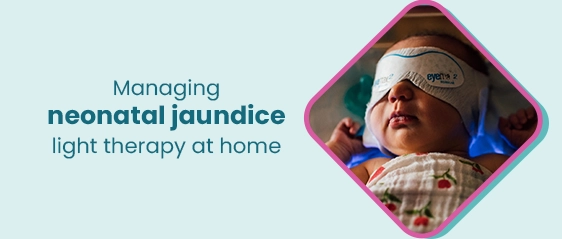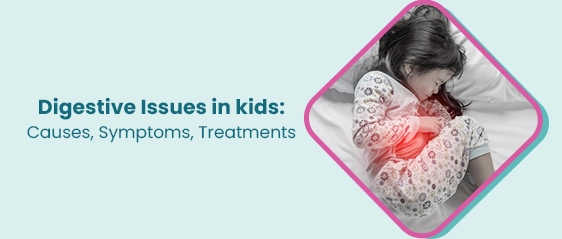Perinatal Health: Symptoms,Treatments,and Choosing the Right Doctor
- 14 Aug 2023
Identifying symptoms related to perinatal health issues is essential for timely intervention and proper medical care for both the mother and the newborn. While symptoms can vary depending on the specific health issue, here are some general guidelines on how to identify symptoms related to perinatal health issues:
- Regular Prenatal Check-ups: Regular prenatal visits with a healthcare provider are crucial during pregnancy. These visits involve physical examinations, blood tests, and discussions about any symptoms or discomfort you might be experiencing.
- Monitoring Your Body: Pay attention to any unusual changes in your body during pregnancy. This could include sudden weight gain or loss, swelling, persistent headaches, blurred vision, or changes in urination patterns.
- Fetal Movements: Monitor your baby's movements regularly. A decrease in fetal movements could indicate potential issues, and you should contact your healthcare provider.
- High Blood Pressure: It can be a sign of preeclampsia. Symptoms might include severe headaches, blurred vision, nausea, and swelling of the hands and face.
- Abdominal Pain or Contractions: Persistent abdominal pain or contractions before the 37th week of pregnancy might indicate preterm labor.
- Vaginal Bleeding: Any amount of vaginal bleeding during pregnancy should be reported to your healthcare provider, as it can signal various issues.
- Breathing Difficulties: In newborns, rapid or labored breathing, grunting sounds, and flaring nostrils can be signs of respiratory distress syndrome.
- Jaundice: If your newborn's skin and eyes appear yellow, it might be a sign of neonatal jaundice.
- Feeding Difficulties: If your newborn is struggling to latch, has weak sucking reflexes, or is not feeding well, it's important to consult a healthcare provider.
- Temperature Instability: Difficulty maintaining body temperature, especially in premature infants, can be a concern.
- Changes in Behavior: Newborns with health issues might exhibit changes in behavior, such as excessive crying, irritability, or extreme sleepiness.
- Skin Changes: Rashes, skin discoloration, or unusual marks on the baby's skin should be evaluated by a healthcare provider.
Remember that each pregnancy and newborn is unique, and not all symptoms indicate a serious problem. However, it's always better to be cautious and seek professional advice if you're concerned about any symptoms you or your newborn are experiencing.
Consulting the Right Doctor:
The primary specialists involved in treating perinatal health issues include:
- Obstetrician/Gynecologist (OB/GYN): OB/GYNs are medical doctors who specialize in women's reproductive health, pregnancy, and childbirth. They provide prenatal care, monitor the mother's health during pregnancy, and oversee labor and delivery.
- Maternal-Fetal Medicine Specialist (Perinatologist): These specialists are OB/GYNs who have further training in high-risk pregnancies. They manage complex medical conditions that could affect the mother or the baby during pregnancy, providing advanced monitoring and interventions.
- Neonatologist: Neonatologists are pediatricians with specialized training in caring for newborns, particularly those who are premature, critically ill, or have complex medical conditions. They work in neonatal intensive care units (NICUs) and provide specialized care to newborns during the perinatal period.
- Pediatrician: Pediatricians specialize in the care of infants, children, and adolescents. They provide routine check-ups, vaccinations, and medical care for newborns and infants after they are discharged from the hospital.
- Lactation Consultant: Lactation consultants provide guidance and support to mothers who are breastfeeding, helping them overcome challenges and ensuring successful breastfeeding.
- Endocrinologist: Endocrinologists may be consulted for women with gestational diabetes or other hormonal issues during pregnancy.
Treatments for perinatal health issues :
Treatment options for perinatal health issues vary depending on the specific condition affecting the mother or the baby. Here are some common treatments available for perinatal health issues:
- Medications: Certain medications can manage conditions like gestational diabetes, high blood pressure, and infections to ensure the health of the mother and the baby. Antibiotics may be prescribed to treat infections that could affect both the mother and the baby.
- Monitoring and Bed Rest: In cases of preeclampsia or other high-risk conditions, close observation and bed rest may be recommended to ensure the safety of both the mother and the baby.
- Preterm Labor Management: Medications called tocolytics may be administered to delay preterm labor and give the baby more time to develop in the womb.
- Induction or Cesarean Section: In cases where the health of the mother or the baby is at risk, labor may be induced or a cesarean section (C-section) may be performed to ensure a safe delivery.
- Neonatal Intensive Care Unit (NICU) Care: For premature babies or those born with complications, specialized care in the NICU, provided by neonatologists and a team of healthcare professionals, ensures their well-being.
- Surgical Interventions: In cases of certain birth defects or complications, surgical procedures may be required to address the issue and ensure the baby's health.
- Phototherapy: Neonatal jaundice is often treated with phototherapy, which involves exposing the baby to special lights that help break down excess bilirubin.
- Blood Transfusions: In cases of severe anemia or other blood-related issues, newborns might require blood transfusions to restore healthy blood levels.
- Nutritional Support: If the baby is premature or has difficulty feeding, specialized feeding techniques, intravenous nutrition, or feeding tubes might be used to provide necessary nutrients.
- Psychological Support: Postpartum mental health issues, such as postpartum depression, are treated through counseling, therapy, and, in some cases, medication.
Conclusion
The treatment depends on factors like the specific condition, its severity, and the overall health of the mother and the baby.
Frequently Asked Questions
1.How are perinatal problems treated?
Depending on the issue, treatments might include medicines, changes in lifestyle (like eating healthy and staying active), medical procedures, or counseling.
2. Can moms get sad during and after pregnancy?
Yes, moms can feel sad or anxious. It's called perinatal depression or anxiety. Talking to a doctor or counselor and getting support can help.
3. How are perinatal problems treated?
Depending on the issue, treatments might include medicines, changes in lifestyle (like eating healthy and staying active), medical procedures, or counseling.
4. What is the importance of prenatal care in perinatal health?
Monitoring the health of the mother and the unborn child during pregnancy is essential. It includes routine examinations, screenings, and testing to identify and address any potential issues as soon as they arise. Prenatal care enables healthcare professionals to advise patients on keeping their best health during the perinatal period and helps to promote a healthy pregnancy while lowering the chance of difficulties.
5.What are some common issues addressed in perinatal health treatment?
Perinatal health treatment addresses a variety of issues, such as gestational diabetes, preeclampsia, preterm labor, fetal growth concerns, and other medical complications that can arise during pregnancy. Mental health concerns, such as postpartum depression and anxiety, are also addressed through counseling and support services.





